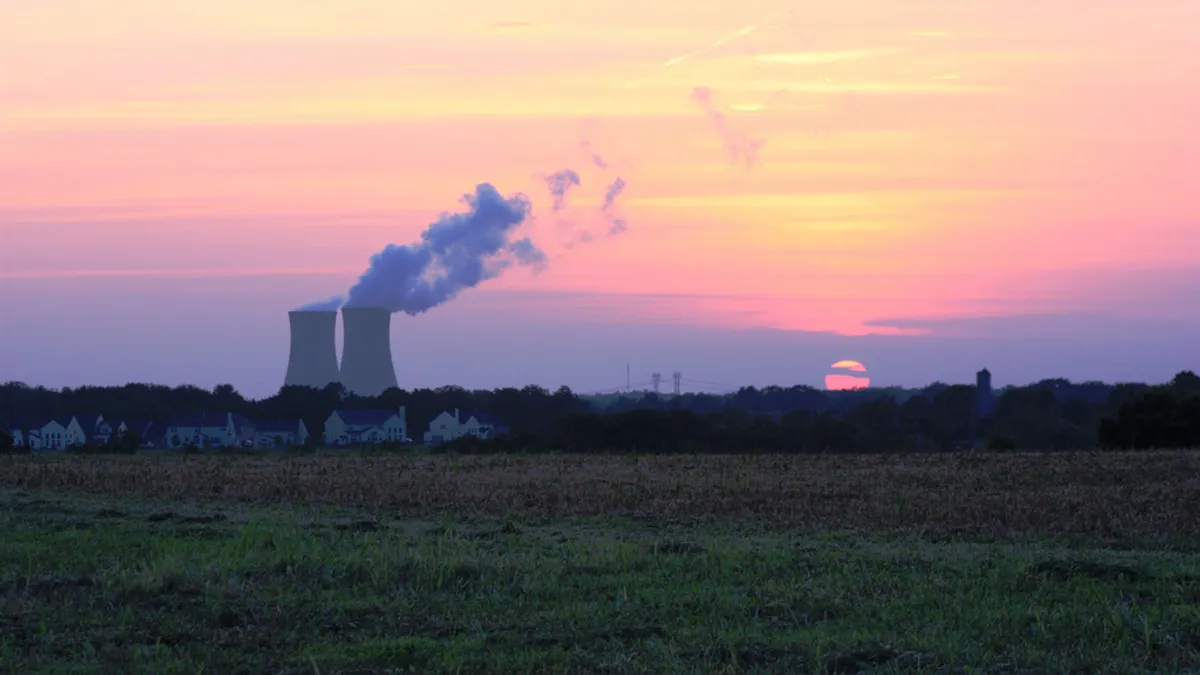Dive Brief:
- Difficulties with new nuclear construction in the United States managed by Westinghouse Electric have rippled up the corporate chain, leading to a $6 billion write-down at Toshiba and the resignation of Chairman Shigenori Shiga, the New York Times reports.
- Toshiba acquired a majority stake in Westinghouse in 2006, and the company is managing construction of new nuclear generation at the Vogtle plant in Georgia and V.C. Summer in South Carolina. Both, however, are years behind schedule and billions over budget.
- MIT Technology Review predicts the loss, and Toshiba's likely exit from the business, will mean an end to new nuclear construction in the United States.
Dive Insight:
Development of new nuclear generation in Georgia and South Carolina will continue, but some analysts believe that may be the end of industry for now. There is doubt that Toshiba will find a buyer for its stake in Westinghouse, which now says it should never have purchased.
Costs have increased at both the Vogtle and Summer plants, and the projects are behind schedule. The Fukishima nuclear disaster in Japan and the decline of natural gas prices also have pressured Toshiba's interests in the sector.
But it is unclear what impact the demise of nuclear projects will have on global climate goals. According to the Nuclear Energy Institute, global installed nuclear capacity will need to more than double by 2050 to limit global temperatures from rising more than 2 degrees Celsius. That finding, from 2015, was included in a policy roadmap issued jointly by the Organization for Economic Cooperation and Development’s Nuclear Energy Agency and International Energy Agency.
Toshiba said in a presentation that it intends to "reduce risk at eight plants currently in progress by thoroughly implementing comprehensive cost reduction measures."















